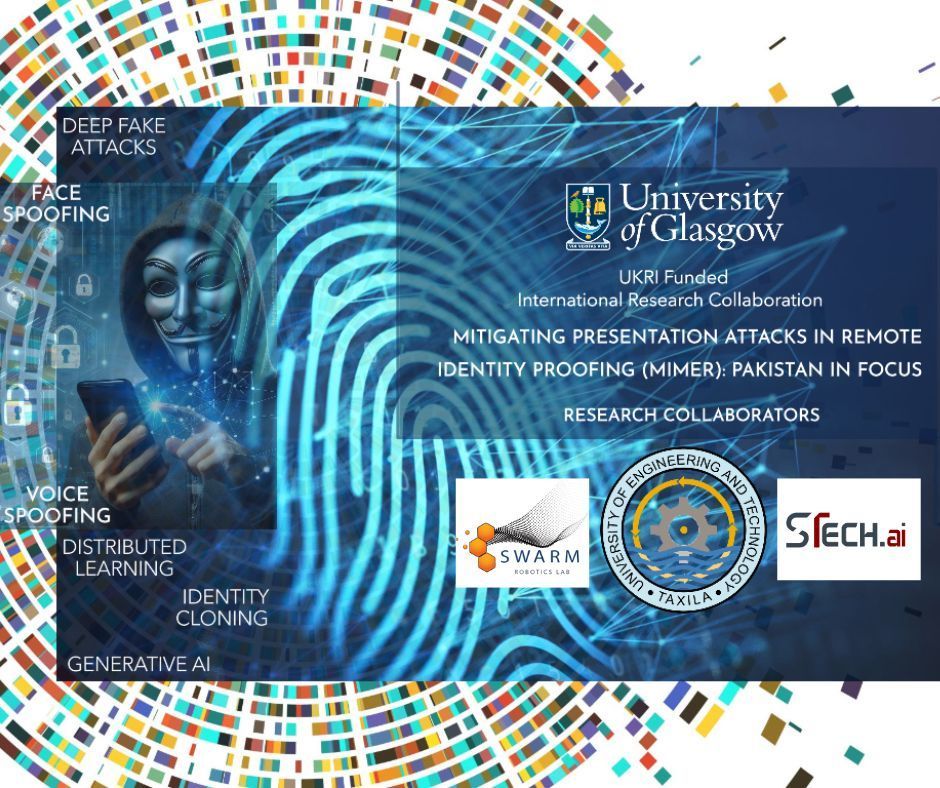
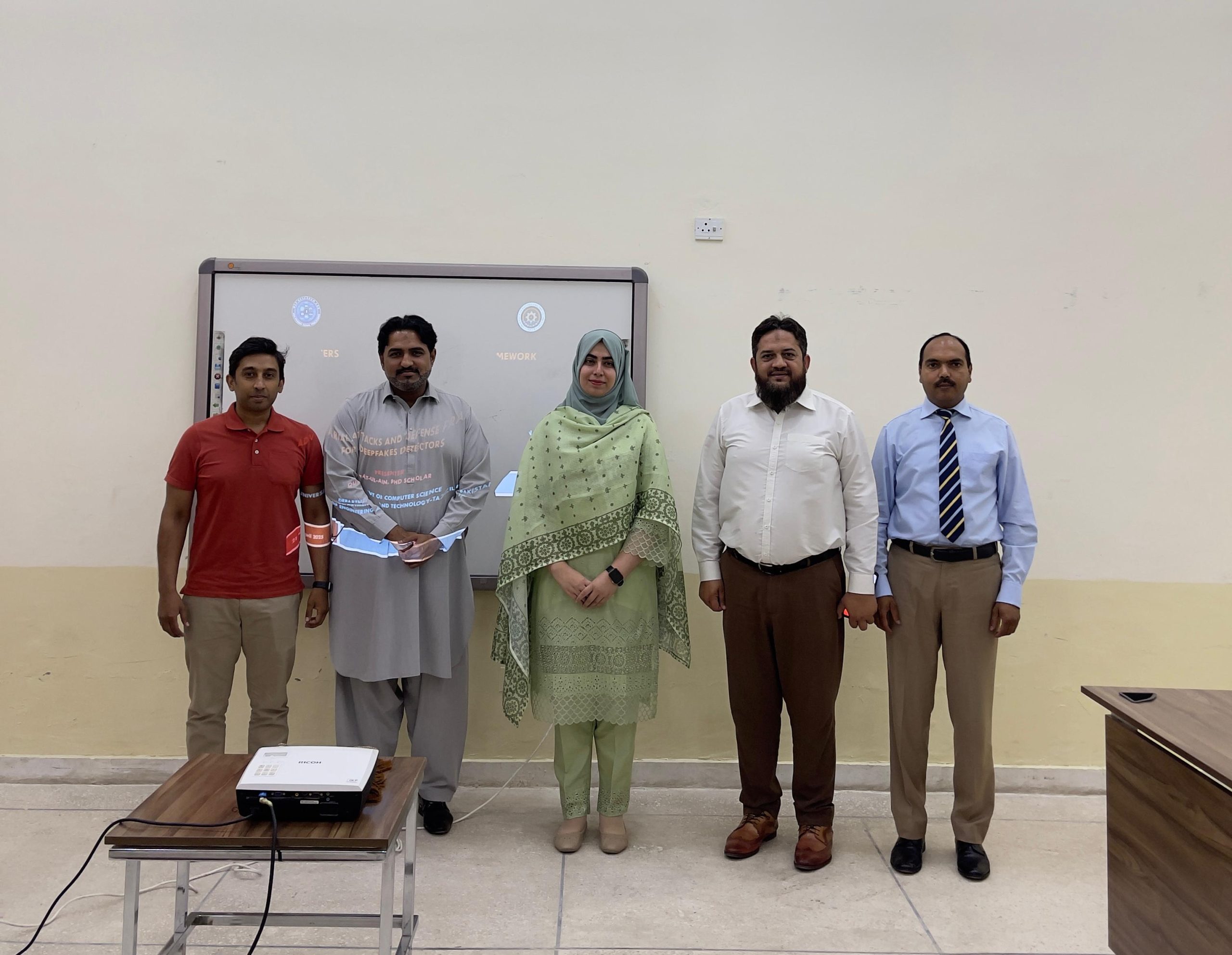
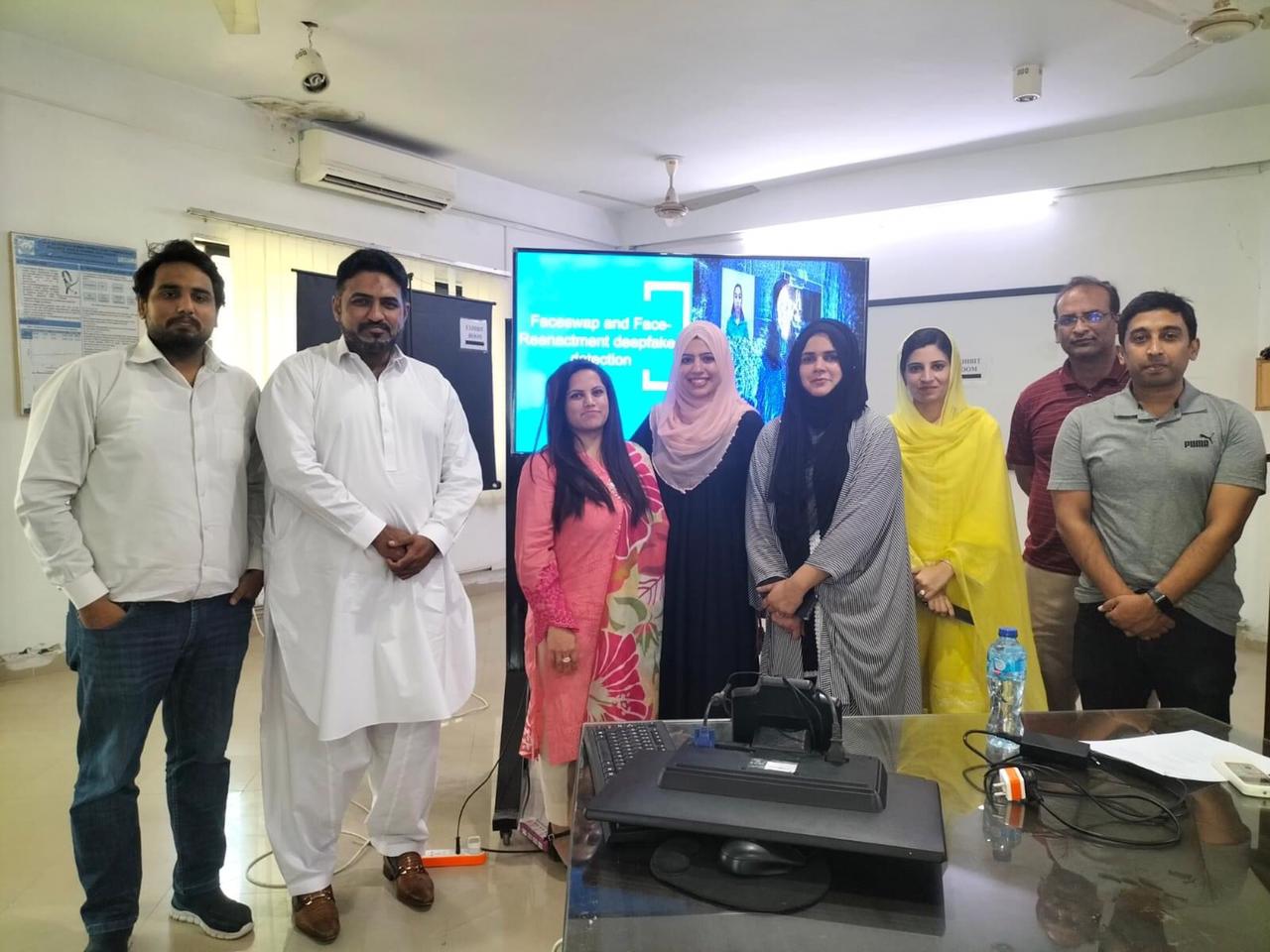
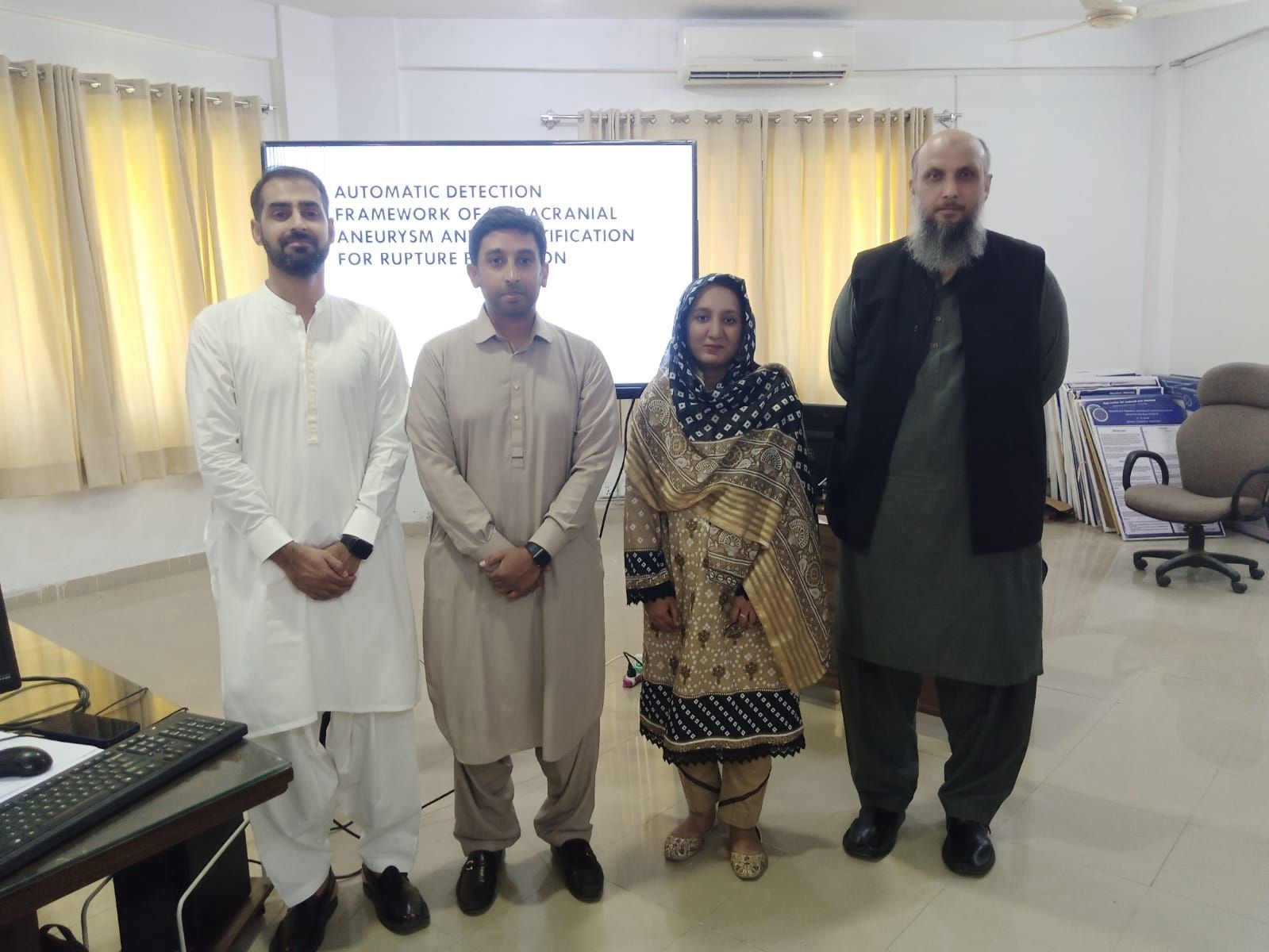
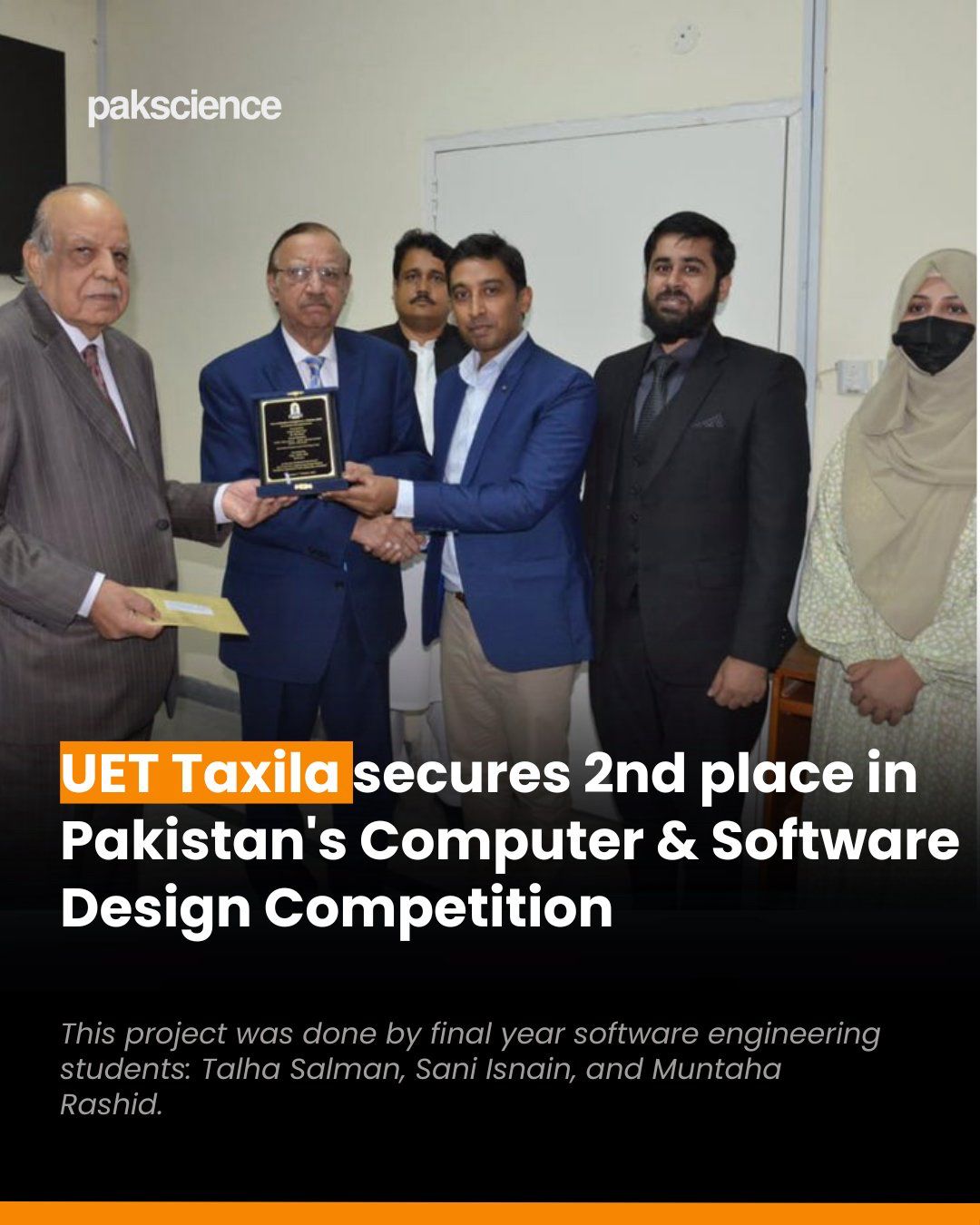
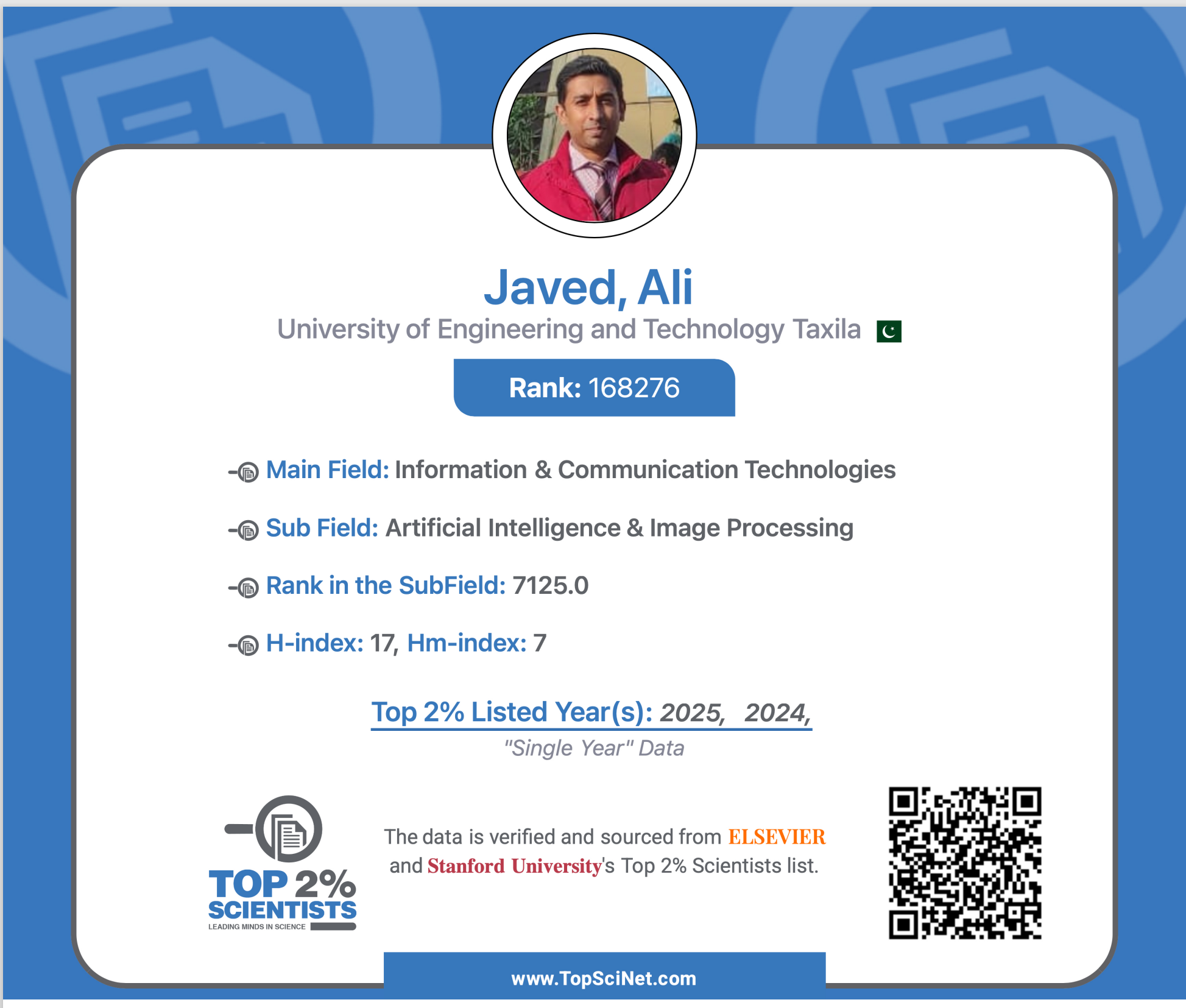
📢 Dr. Ali Javed (Associate Professor and Director MSP Lab, Software Engineering Department, UET Taxila) has been recognized among the top 2% of scientists worldwide , based on impact data for 2023.
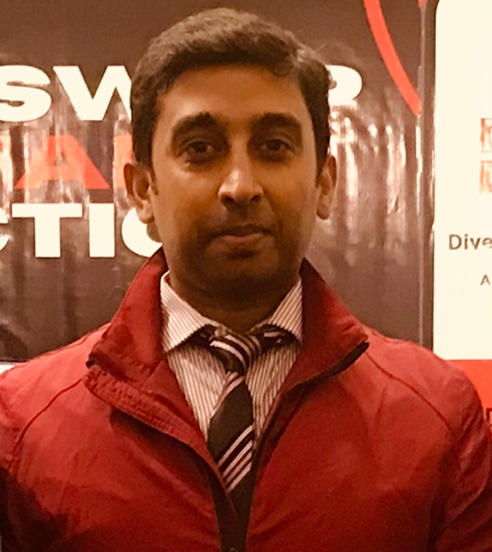
Stanford University has recently released an update of the list that represents the top 2% of the most-cited scientists in various disciplines. The report was prepared by a team of experts led by Prof. John Ioannidis, the eminent Professor at Stanford University.
This prestigious ranking , compiled by Stanford University and Elsevier, places Dr. Ali Javed within the top 100,000 scientists globally, measured through c-scores (with and without self-citations), and positions him in the top 2% percentile in the subfields of: AI, Image Processing, Information and Communication Technology.
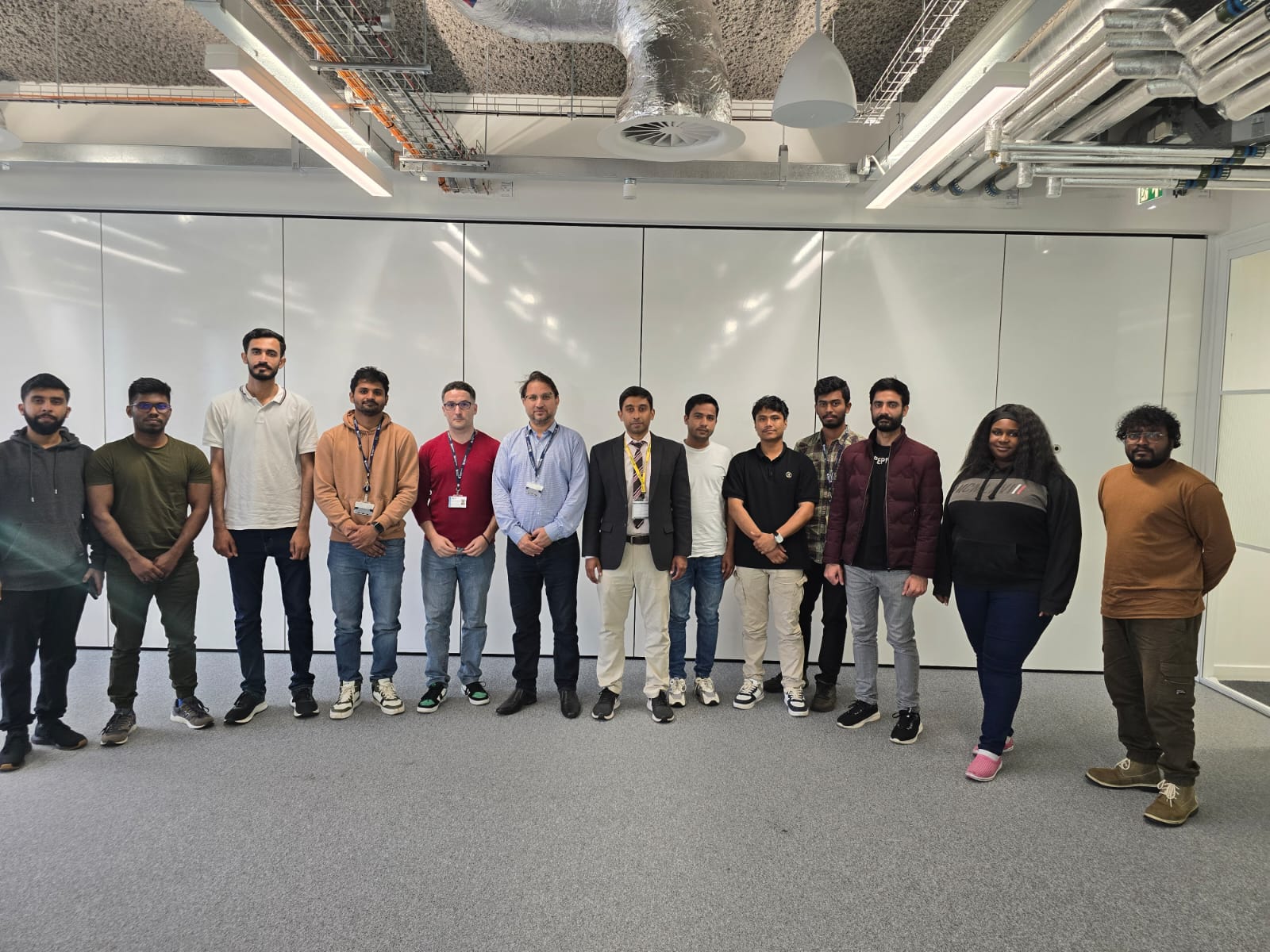

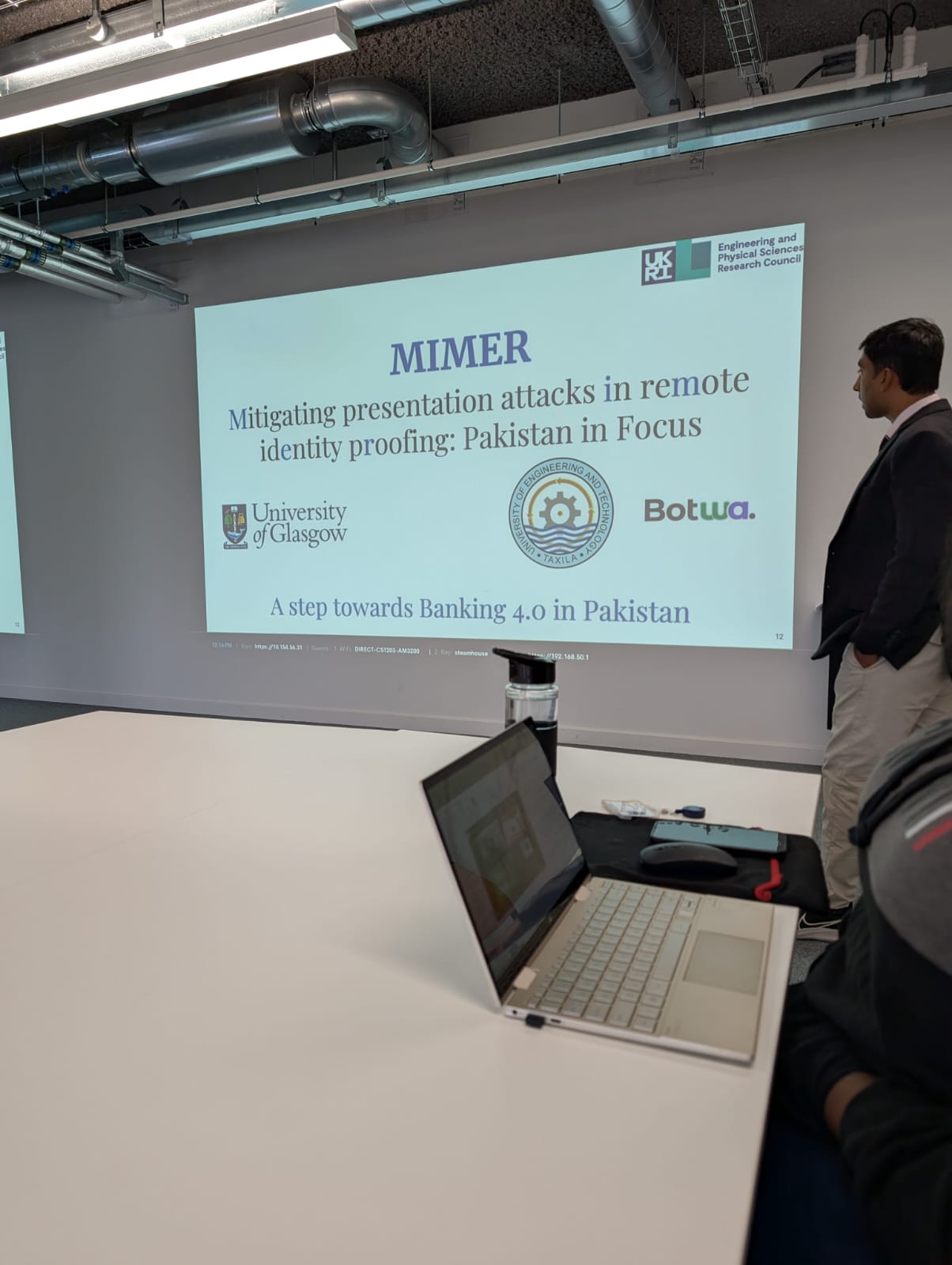
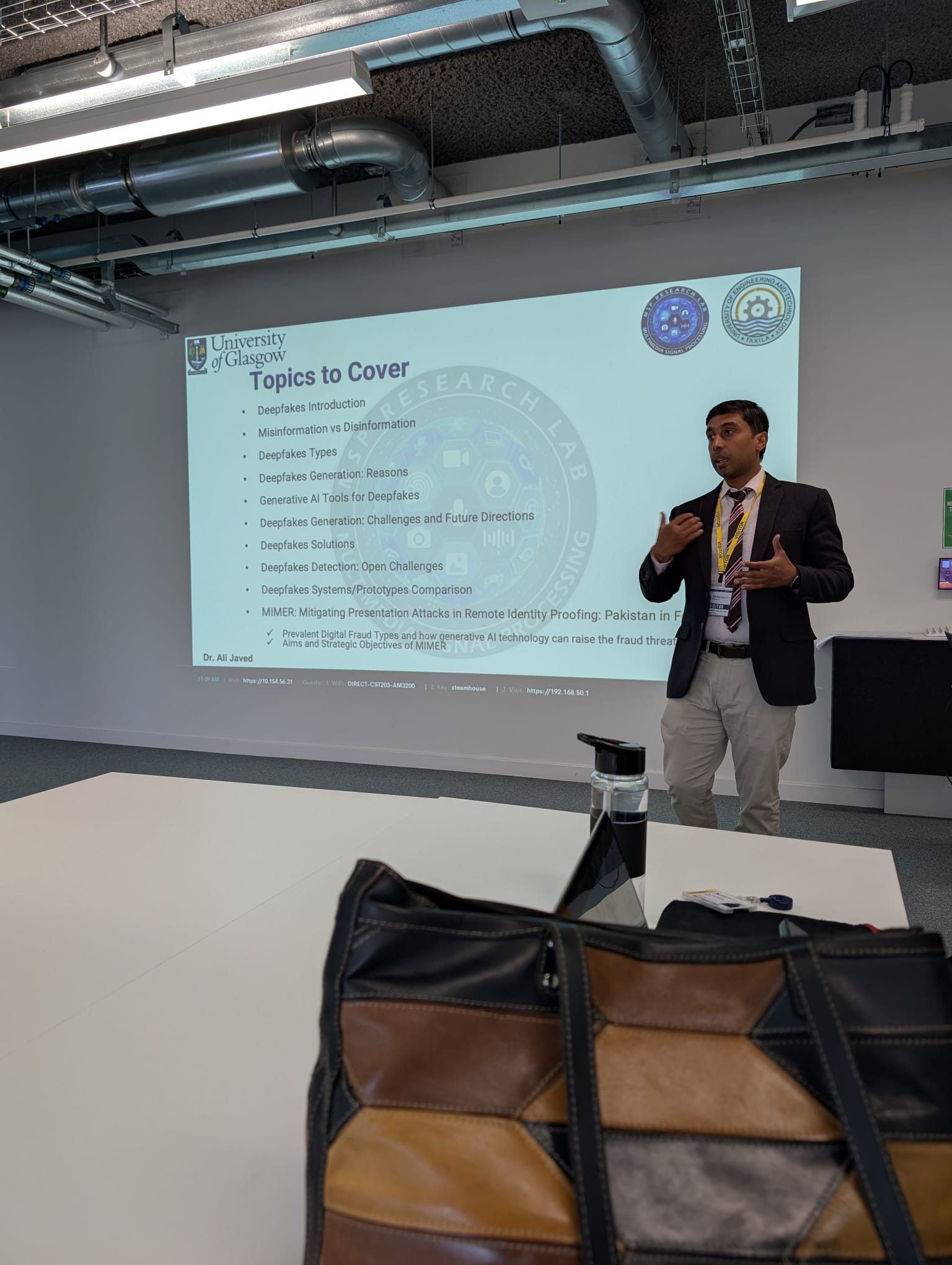
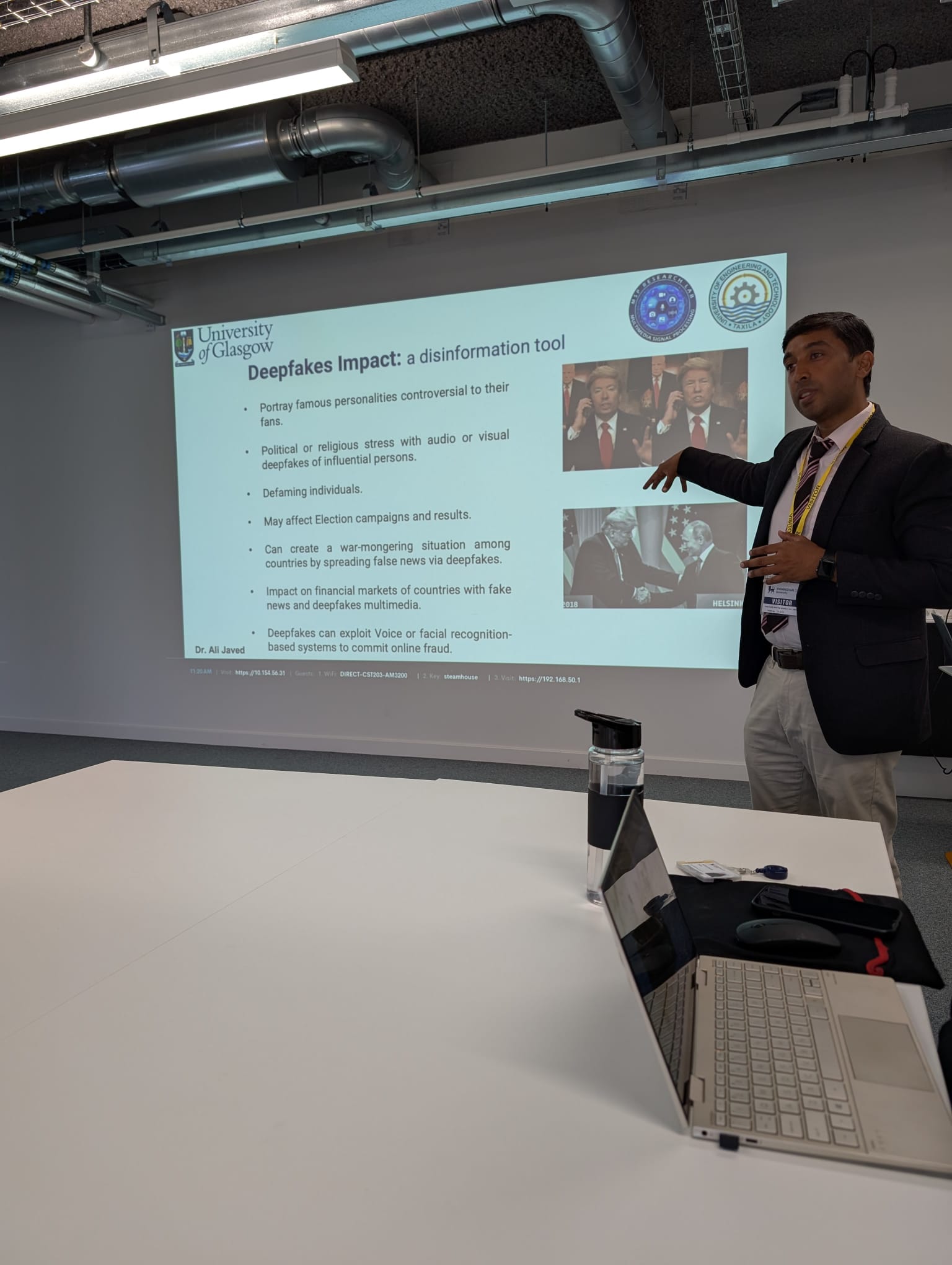
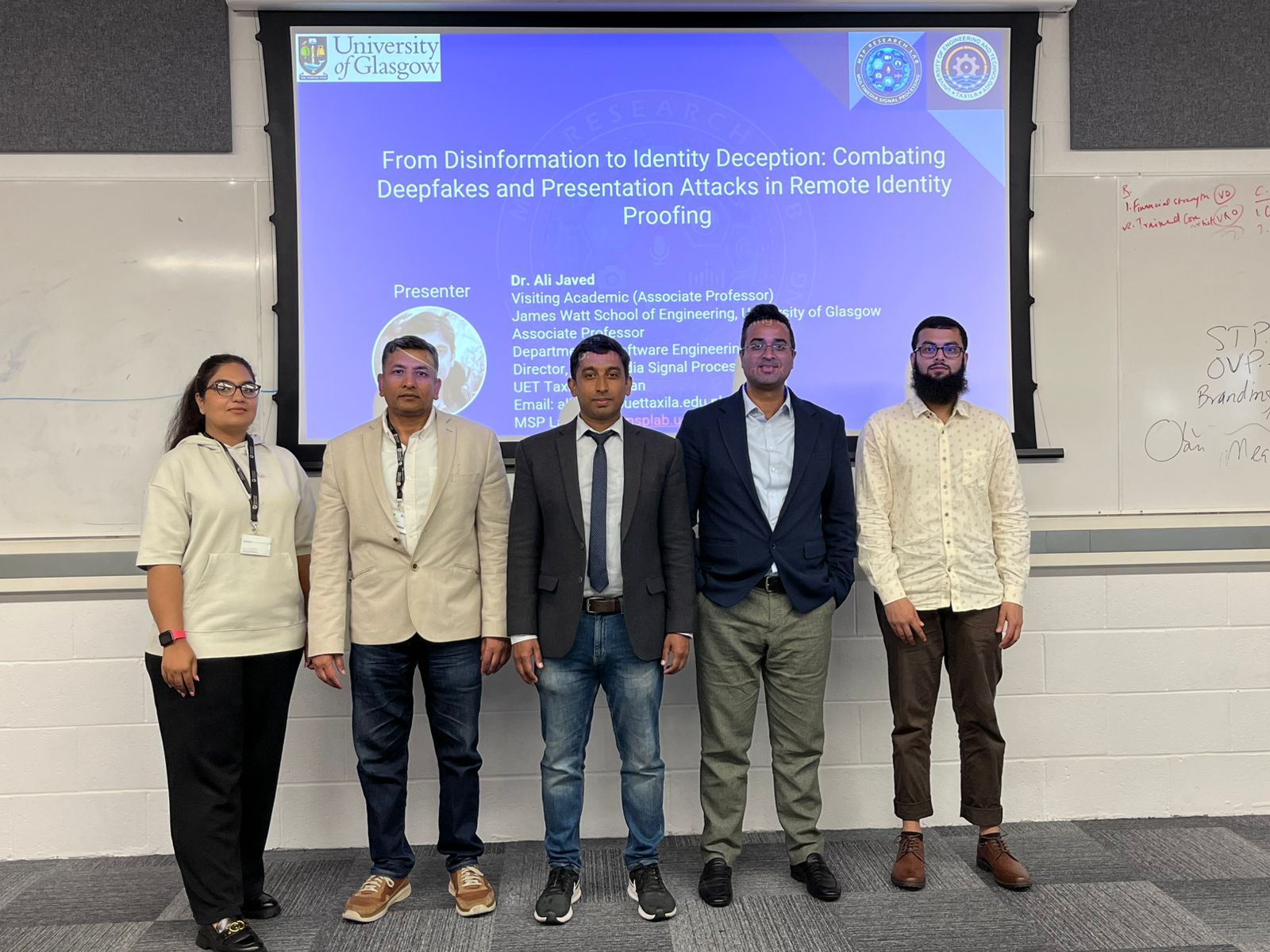
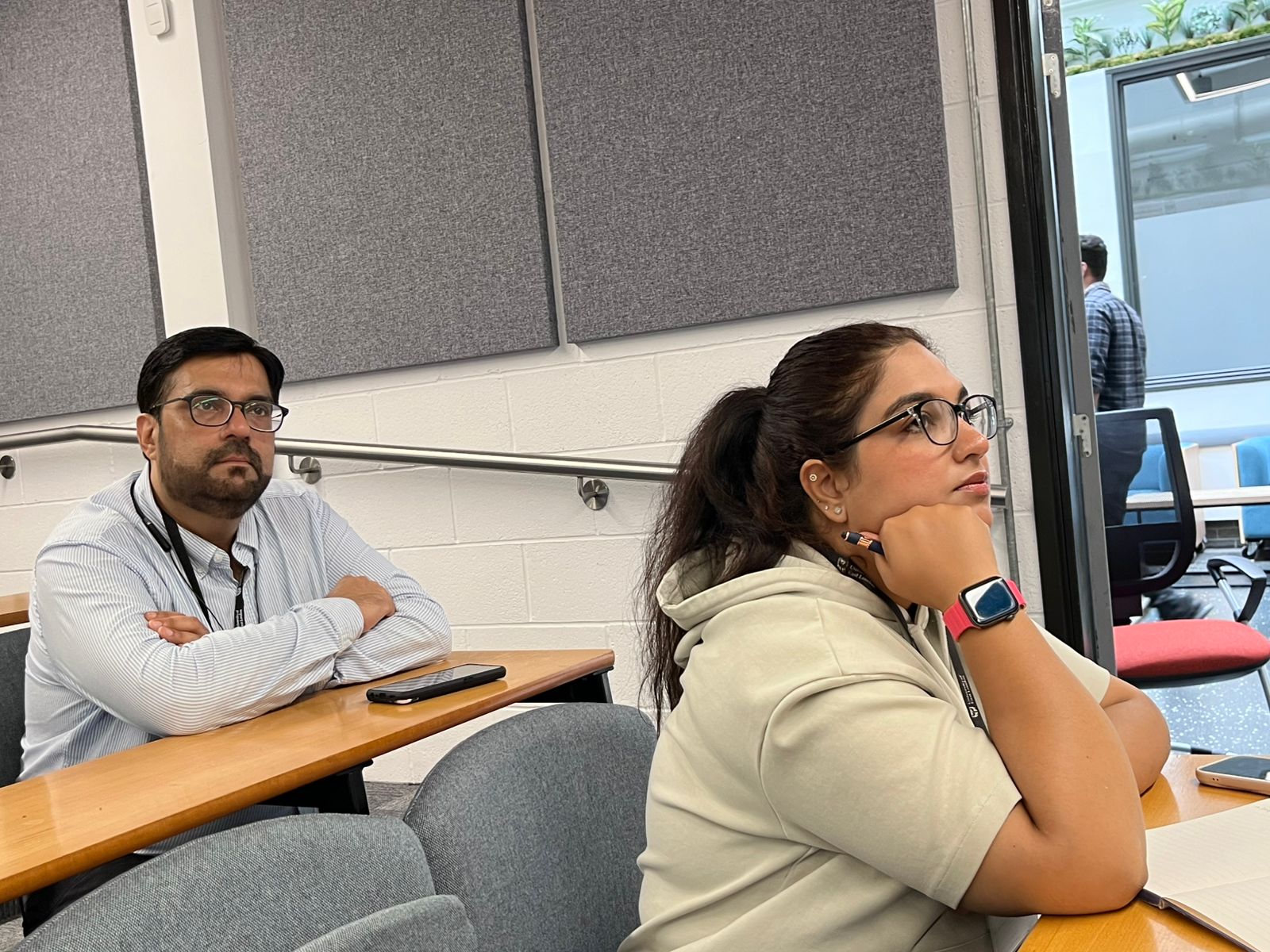
Following the momentum of our UKRI-funded MIMER project, we’ve been awarded a new HEC NRPU-funded project titled:
DeAPGuARD: Deepfake Audio Exploitation Prevention and Guarding Against Real-time Deception
This project aims to advance our work on combating AI-generated audio deception, especially in real-time scenarios, a critical continuation of the vision behind MIMER.
Only a limited number of projects were selected in this highly competitive NRPU call, and we are honored to be among them
🤝 Project Team:
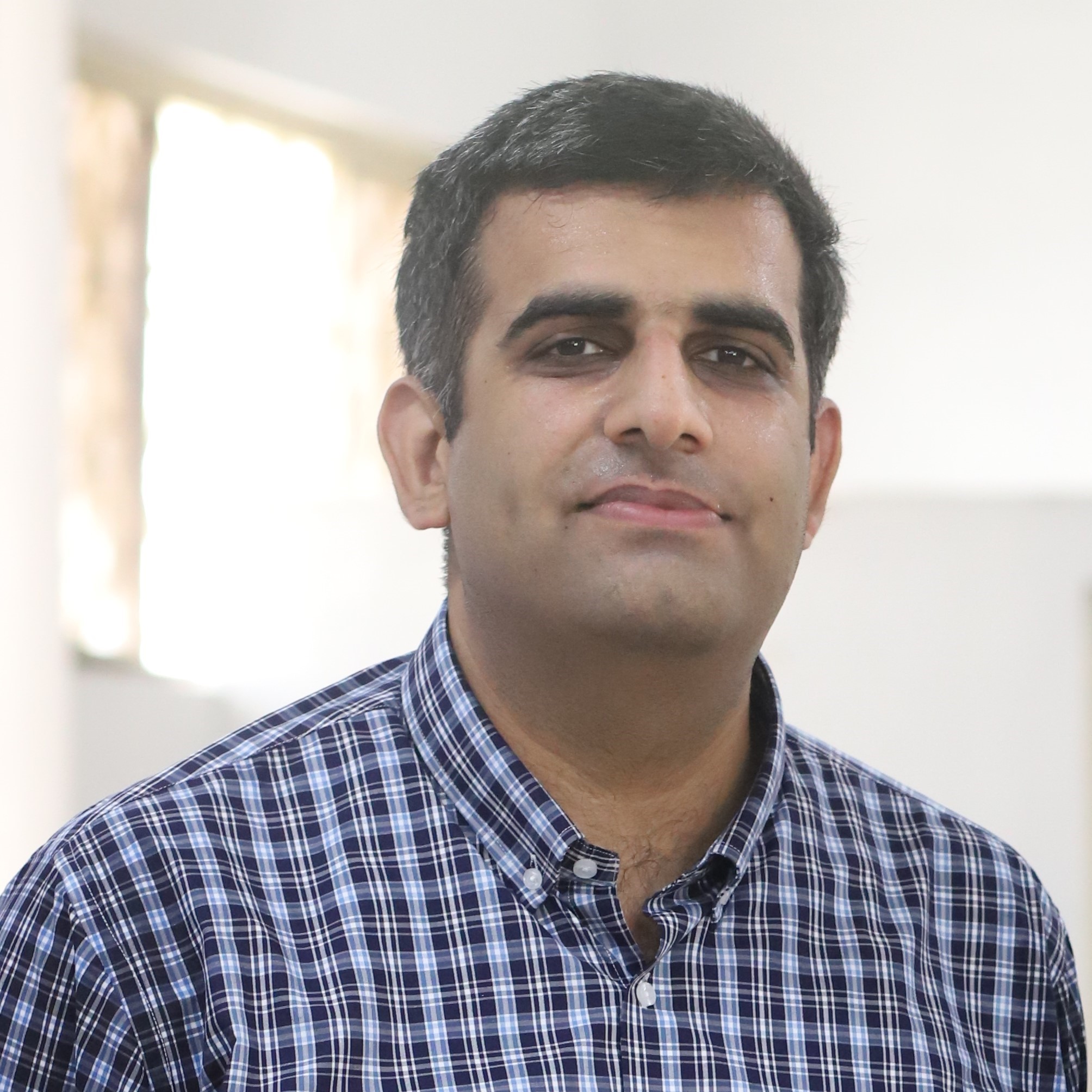
Dr. Junaid Mir
(PI)

Dr. Ali Javed
(Co-PI)
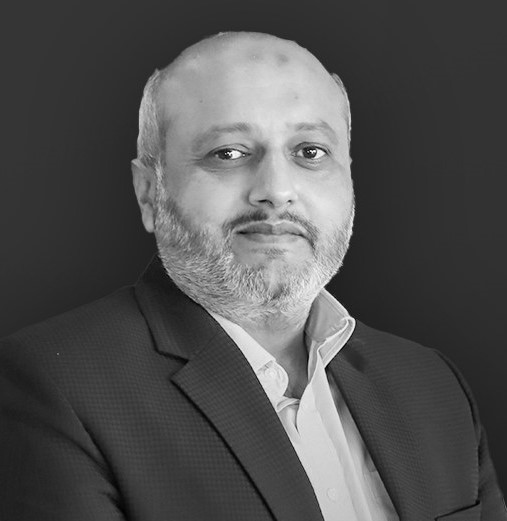
Prof. Muhammad Haroon Yousaf
(Co-PI)

Dr. Ahmed Zoha
(International Collaborator – University of Glasgow)
🔹 Dr. Junaid Mir (PI)
🔹 Prof. Muhammad Haroon Yousaf (Co-PI)
🔹 Dr. Ali Javed (Co-PI)
🔹 Dr. Ahmed Zoha (International Collaborator – University of Glasgow)
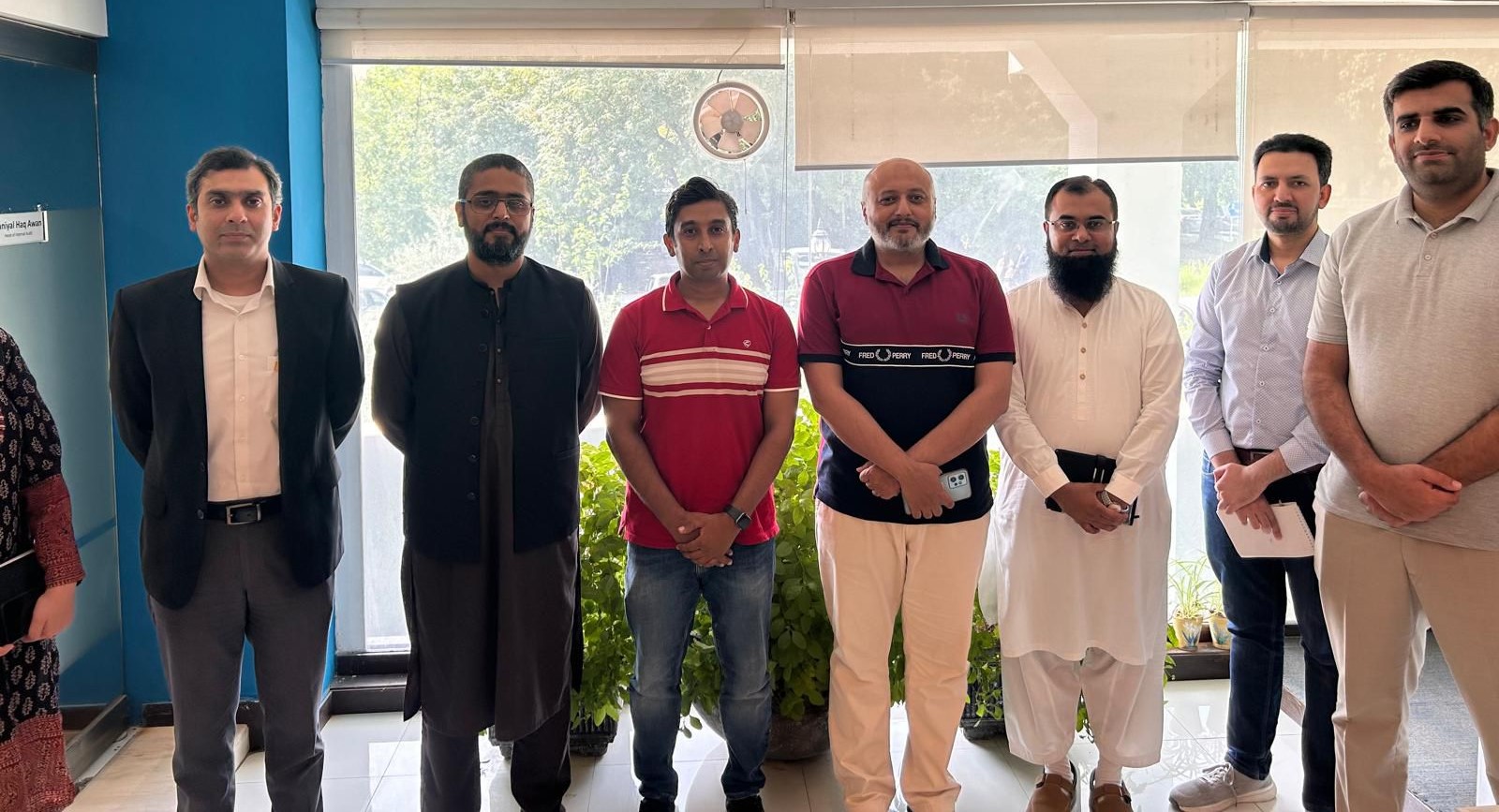
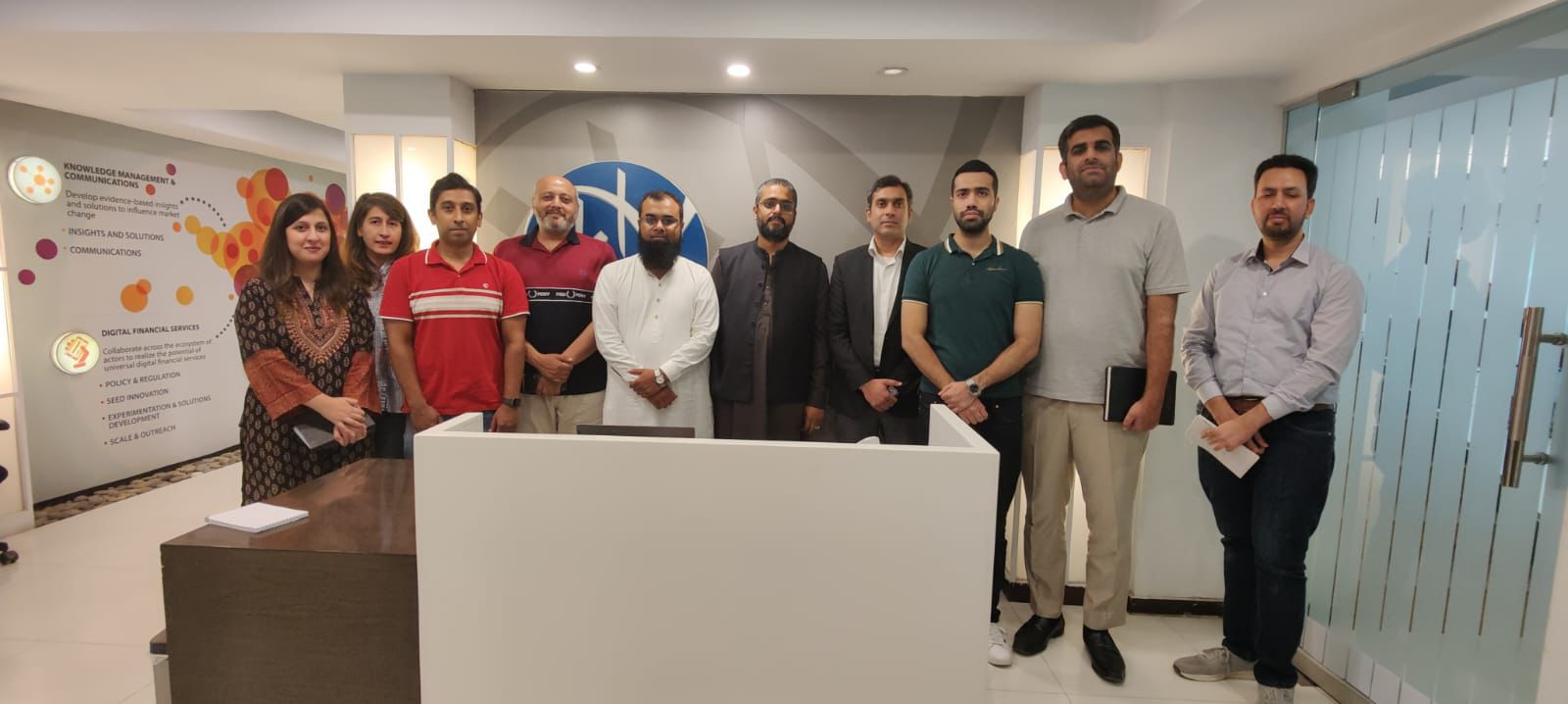
As part of the EPSRC-funded MIMER project’s stakeholder engagement activities, the MIMER team—comprising Dr. Ahmed Zoha from the University of Glasgow, Dr. Muhammad Haroon Yousaf, Dr. Junaid Mir, Dr. Ali Javed from the University of Engineering and Technology, Taxila, and our industrial partner STech.ai —met with Karandaaz Pakistan. Karandaaz Pakistan is an impact investment platform dedicated to driving sustainable economic growth and strengthening financial and social protection systems for inclusion.
The meeting aimed to discuss potential collaborations, identify gaps and vulnerabilities in the existing identity proofing system in Pakistan, and evaluate their readiness to address the rise in scams and fraud driven by the rapid development of generative AI and deepfakes.
MIMER aims to conduct an exploratory study within Pakistan and develop proof-of-concept anti-spoofing solutions that are robust against attacks involving deepfakes. UK banks are already experiencing scams involving deepfakes, and with the advent of AI-powered translation tools, scammers will be able to replicate voices and accents in multiple languages, potentially targeting victims across borders.

As part of the EPSRC-funded MIMER project’s stakeholder engagement activities, the MIMER team—comprising Dr. Ahmed Zoha from the University of Glasgow, Dr. Muhammad Haroon Yousaf, Dr. Junaid Mir, Dr. Ali Javed from the University of Engineering and Technology, Taxila, and our industrial partner STech.ai —met with Karandaaz Pakistan. Karandaaz Pakistan is an impact investment platform dedicated to driving sustainable economic growth and strengthening financial and social protection systems for inclusion.
Welcome to MSP Lab
MSP research lab focuses on generating cutting-edge research results in the field of multimedia signal processing. The research at MSP group focuses on extracting useful information from the multimedia content by analyzing images, videos, and audio signals. MSP is conducting useful research and designs various state-of-the-art computer vision, image and audio processing based applications by using both learning and non-learning-based techniques. The research lab is keen to develop desktop as well as mobile applications for computer vision, image processing, and audio processing using machine learning. The members at MSP research lab also designs various quality engineering frameworks from time to time to evaluate the performance of multimedia signal processing applications. One of the major objectives of MSP research lab is the development of novel technological innovations to support the activities of daily life by using wearable and smart sensors.
News
Is seeing still believing?
Combating Deepfakes, one of the biggest AI threats.
To conduct cutting-edge research and develop state-of-the-art Artificial Intelligence algorithms for solving real-world problems, and product development and commercialization to facilitate the socio-economic development of Pakistan.
Establishment of a state-of-the-art Multimedia signal processing research center for imparting technological innovation and collaborative research in computer vision-oriented Artificial Intelligence for capacity building of young scholars to facilitate achieving the skilled IT resources for sustainable growth in Pakistan.